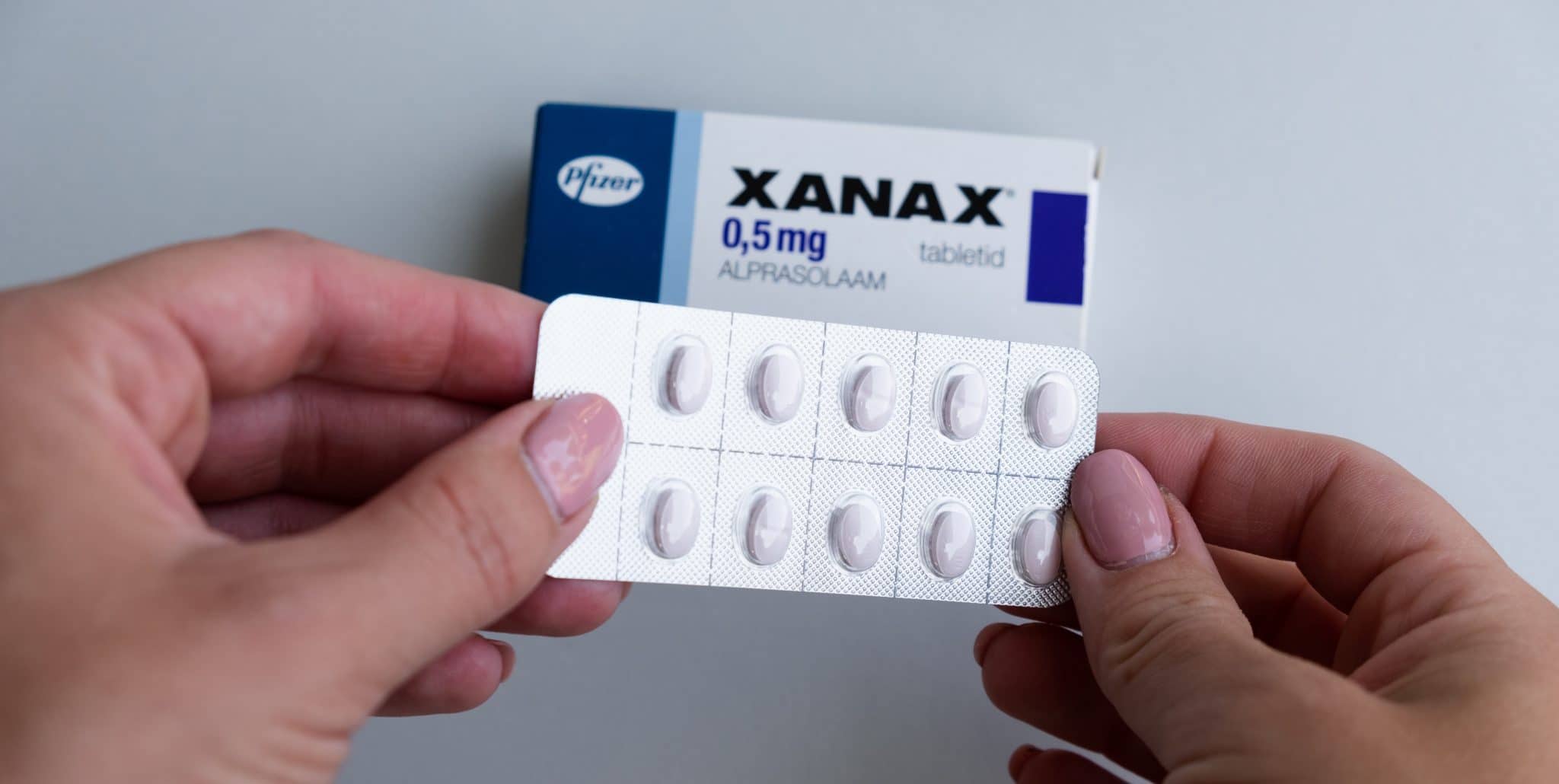
Although Xanax, its generic name being alprazolam, is used abundantly to treat anxiety, insomnia and panic attacks – it has a serious propensity for abuse. Even when taken as prescribed by your doctor you may develop tolerance quickly that can lead to potential addiction down the line. To remain vigilant in protecting yourself from becoming addicted to this medication we have compiled five warning signs of an impending problem:
1. Physical symptoms
2. Psychological symptoms
3. Obsession with Xanax
4. Using Xanax along with other drugs
5. Personal losses
Let’s have a look at each of them in more detail.
Physical symptoms
If you consume an excessive amount of Xanax, your body will pay the price and then exhibit warning signs including:
- headache
- drowsiness
- dry mouth
- slurred speech
- nausea
- dizziness
- lack of coordination
- increased salivation
- feeling light-headed
- constipation
- decreased sex drive
It is all too common for people to exceed the dosage of their prescribed medication. This can have a hazardous ripple effect, leading to an increased tolerance and reliance on the substance – like in this case with Xanax. While your body adapts swiftly and requires higher doses just to achieve the same effects as before, it makes quitting much more strenuous should you decide down that path; withdrawal symptoms being one unpleasant reality associated with sudden discontinuation of use.
These include:
· Muscle pain and stiffness
· Changes in heart rhythm
· Trembling
Furthermore, if you take too much Xanax, it can cause sedation for days. And of course there are potential permanent long-term side effects that come with taking this medication as well.
These include:
- Depression
- Delirium
- Aggression and impulsiveness
- Cognitive impairment (e.g. memory loss)
- Increased risk of dementia
- Psychosis
Psychological symptoms
When you become addicted to Xanax, your thought process will be affected and a few distinct patterns of behavior may emerge. Your life becomes largely focused on taking the drug or seeking out more of it – resulting in disregarding responsibilities at work and home. The clearest indication that someone has become dependent upon this substance is when they’re unable to go about their day without having taken some first; as if an internal need for the drug had been deeply ingrained within them.
By inhibiting nerve activity in the brain and spinal cord, Xanax addiction not only impairs your physical state of being but also produces many psychological effects. With prolonged use, you may become less active with a decreased ability to care about your environment and those around you. Other damaging side effects include:
- manic-type moods
- confusion
- major changes in behavior (like excessive tiredness or lack of enthusiasm)
- becoming easily annoyed
- sudden irritability
- becoming more talkative
- avoiding tasks that require a lot of attention
- trouble remembering things
Obsession with Xanax
The pathway to Xanax addiction usually starts with the drug being abused. The individual is unable to resist their desires for higher doses of the drug and they devote significant time into obtaining it. Over time, this dependency on Xanax develops without warning as an uncontrollable urge even when one knows that its use can have detrimental effects on their physical health.
Ordinarily, Xanax is recommended to be taken for a brief period of time and accompanied by the progressive decrease in dosage. This permits you to eventually gradually “overcome” dependency on the drug without it. Additionally, doctors generally allot only a few prescription renewals per patient; thus if your addiction has used up all your refills, there is an inclination to look for illegally obtained versions of Xanax from street dealers as an alternative option which unfortunately can contain hazardous additives such as fentanyl that significantly heighten risk associated with overdosing leading potentially fatal consequences.
Using Xanax along with other drugs
Rehab specialists term this type of use as “polydrugs,” where people often take Xanax in conjunction with another substance like alcohol. Doing so will amplify the high, but it can also be life-threatening and deadly. The consequences are far more deleterious when both drugs are taken together due to them being depressants – they slow down several vital bodily functions such as respiration and pulse rate, which could result in potentially fatal outcomes if those processes become too dormant.
If your heart and breathing were to suddenly stop, the very worst might occur. However, even if that doesn’t happen, there will still be serious ramifications on your nervous system. Your reflexes and reaction time will suffer significantly which can leave you more vulnerable to collisions, trips and falls – not ideal!
Personal losses
Consuming Xanax disrupts the dynamics of your brain’s reward system, prompting you to consume more and more in order to feel fulfilled. This will eventually lead you to lose interest in activities that used to bring joy into your life, leaving only the satisfaction provided by Xanax as an alternative. Your relationships with friends and family may also become strained due to this compulsion for taking the drug; it is likely that concerned parties will be pushed away from you due to your unwillingness or inability maintain healthy connections with other people.
As addiction takes hold, you may find yourself isolated from loved ones and accustomed to relying on Xanax as your only source of gratification. Sadly, that isolation can compound itself; the more alone you are, the harder it is to break away from an escalating dependency.
What do I do if I’m addicted to Xanax?
If you’re determined to overcome your Xanax addiction, never attempt the daunting task of quitting cold turkey. Doing so can drastically harm both your physical and mental health. Instead, talk with a medical expert in rehabilitation centers who can provide assistance and support throughout this difficult yet rewarding journey towards sobriety.
